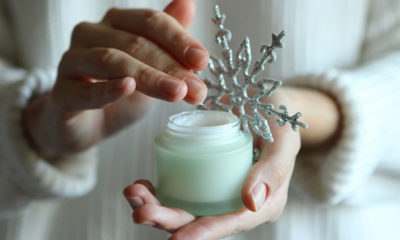
Cannabis
NBA Coach’s Comments Highlight Polarization on Marijuana in Sports
History is full of little statements that explode into larger drama — from momentous political speeches to that time you didn’t sufficiently compliment your grandma’s kugel at Passover.
Steve Kerr, head coach for the Golden State Warriors, is the latest name to join the list of unintentional fire starters.
Last week, in a podcast interview with CSN Bay Area, Kerr acknowledged that he had recently tried medical cannabis in hopes of countering the chronic pain that resulted from a botched spinal surgery in 2015.
“I tried it, and it didn’t help at all,” Kerr casually told host Monte Poole. “But it was worth it, because I’m searching for answers on pain. But I’ve tried painkillers and drugs of other kinds, as well, and those have been worse.”
Kerr’s comments open the door to a conversation that seems more important now than ever. His seemingly innocuous statements have spawned heaps of support and scorn from his peers in the NBA, including Golden State players and fellow coaches. That passionate and polarized feedback highlights a growing divide within the world of professional sports over the role and value of medical cannabis.
Kerr played for the Chicago Bulls and the San Antonio Spurs in the 1990s and early aughts, becoming the coach for the Warriors in 2014. The following year, he led the Warriors to their first NBA championship since 1975, and was recognized as the NBA Coach of the Year.
Yet in the midst of his success, Kerr began experiencing back pain caused by a ruptured disk. Then, during a surgery to repair the disk, Kerr’s spinal cord was scratched, resulting in a spinal fluid leak.
Kerr missed 43 games of the 2015-2016 season, and has since struggled to find the right medication to alleviate his debilitating pain. He wasn’t happy using prescription painkillers, so he took a chance on medical cannabis, but said that didn’t do the trick, either.
“You get handed prescriptions for Vicodin, Oxycontin, Percocet… the stuff is awful. The stuff is dangerous. The addiction possibility, what it can lead to, the long term health risks,” he said. “I’m not a pot person… I tried it a few times, and it did not agree with me at all.”
Yet even his brief foray into cannabis (likely the non-psychoactive CBD) was enough to inspire a barrage of outrage from critics.
Phoenix Suns coach Earl Watson expressed frustration and said that Kerr’s actions make him a bad role model for young people.
“You have a lot of kids where I’m from that’s reading this, and they think [using cannabis] is cool… It’s not cool,” he said. Citing his own upbringing in Kansas City, he added, “I’ve seen a lot of guys go through that experience of using it and doing other things [that were] illegal. And a lot of those times, those guys never make it to the NBA, they never make it to college, and somehow it leads to something else, and they never make it past 18.”
Former Houston Rockets player John Lucas echoed Watson’s criticism.
“It hasn’t killed anybody, but it kills anybody who uses it,” he said. “Because it kills them emotionally, spiritually, and it will make you violate all your values.”
But not all of the responses have been quite so negative.
Warriors shooting guard Klay Thompson and forward Draymond Green in particular, have stepped forward in support of their coach.
“When you look at something that comes from the earth, any vegetable that comes from the earth, they encourage you to eat it,” Green said. “So, I guess it does make a little sense as opposed to giving someone a manufactured pill.”
The NBA, for their part, offered some lukewarm support. Spokesman Mike Bass said that it “wasn’t relevant” because the cannabis wasn’t helpful and Kerr wasn’t still using it.
In an era when the United States seems less united than ever, Kerr’s comments capture one of the many ways California feels separate from much of the country.
The day after the podcast interview, Kerr answered some follow up questions in a pre-game interview in Oakland. His main reaction: puzzlement.
“I find it ironic,” he said. “If I said I took OxyContin for relief, it would not have been a headline,”
While Kerr’s statements may stir up pride in states with a more progressive cannabis policy, they also provide a chilling reminder that until cannabis is legal across the country, the word “pot” will continue to carry an element of menace to people that haven’t had a chance to learn the truth about it.
Tell us, do you think athletes and coaches should use medical marijuana?




















